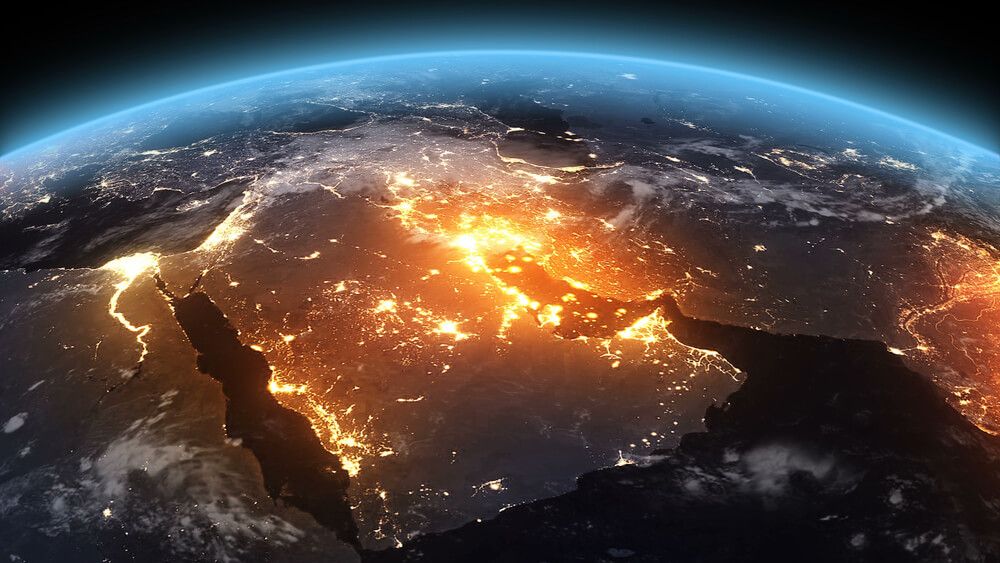Since the end of the nineteenth century, sub-Saharan Africa (SSA) has been integrated into globalization according to three different modalities. The first modality, which lasted until the 1960s, was colonization by various Western European nations, which few SSA countries managed to avoid. In addition to military domination, this period was characterized by SSA countries’ quasi-exclusive economic relations with European metropoles.
The second modality was that of the Cold War. SSA was a theater of confrontation between the two camps, which supported different authoritarian regimes. The two leaders of their respective blocs—the United States and the Soviet Union—were assisted by allies (including France and the United Kingdom for the former, and China and Cuba for the latter) and established ties with African countries rooted in geopolitical clientelism. This period was marked by strong correlation between economic relations, security relations, and cooperation. Some non-aligned countries succeeded in maintaining relations with both blocs.
The third modality emerged following the end of the Cold War and has gathered pace since the turn of the twenty-first century. New partners (the Gulf States, Asian countries, Turkey, Brazil, European countries without a colonial past, etc.) have opened embassies and developed policies and forms of cooperation with the countries in the area, enabling the latter to diversify their alliances and escape certain dependencies. This period is characterized by democratization, economic growth, and greater cooperation between powers that were previously rivals. For example, we have seen China purchase Western companies, as well as China and the West cooperating in the fight against piracy around the Horn of Africa. Security cooperation and economic ties are no longer as closely correlated as they once were.
Despite these evolutions, the vast majority of SSA countries continue to be suppliers of raw materials, while importing manufactured goods. They are therefore highly dependent on their capacity to export a very limited range of products.
China In Africa, an Unavoidable Presence in the Twenty-First Century
The United States and China have been key partners of SSA for decades. The People’s Republic of China (PRC) has developed a dynamic form of diplomacy since the decolonization of the region in the mid-twentieth century, attempting to convince the countries in the area to renounce their recognition of Taiwan. It supported certain independence movements during the Cold War, but with limited resources, since it was still a developing country itself at that stage. Since the late 1990s, the PRC has encouraged its companies to conquer foreign markets, started to become “the world’s factory”, and become increasingly dependent on energy and mineral resources from SSA. It has gradually developed into the region’s leading trade partner, its main bilateral creditor, one of its biggest buyers of mineral resources, and an increasingly important actor in certain key sectors: infrastructure, telecoms, and “critical” raw materials for the decarbonization of the economy. All the while it has developed its soft power around several mantras: the PRC does not give lessons on good governance to SSA countries; it too is a country from the “Global South” that experienced colonization; and it is working toward a “multipolar” world, rather than one dominated by “Western imperialists”.
Washington’s Reinvestment in Africa to Counter Moscow and Beijing
The United States has been a major political player in SSA since the end of the Second World War, supporting official development assistance in “underdeveloped” countries (speech by President Harry S. Truman in 1949), calling for “decolonization”, then becoming the Western leader in SSA during the Cold War. After the collapse of the Soviet Union, different preferential trade agreements were implemented to stimulate trade, including the African Growth and Opportunity Act (2000). However, security investment fell sharply from the first decade of the twenty-first century onward. While the density of cooperation/training with various SSA countries remains high, direct military interventions have been limited to special forces operations. The Trump era marked Washington’s relative diplomatic divestment in SSA, caused among other things by the United States’ growing self-sufficiency in oil products.
Since Joe Biden took up the presidency, a revival of US activism has been visible (in the areas of health, trade, and climate, among others), with increasingly aggressive discourse aimed at Russia (for example, the current campaign against the Wagner Group), but also China. Among the angles of attack against Beijing, American leaders have criticized the re-indebtedness of African economies to the PRC and the forms of dependence this entails; Chinese companies’ non-compliance with environmental and social standards; the practice of tied aid; and corruption. The Democratic Republic of the Congo, which some Congolese observers have nicknamed “the Saudi Arabia of the electric vehicle era”, is one of the SSA countries where Sino-American competition is most intense. Washington is also concerned by China’s growing security investment in Africa, taking umbrage at its opening of a military base in Djibouti; the appearance of Chinese private security companies; and China’s plans to open a second military base in Africa, this time on the Atlantic coast.
What Position Should Europe Adopt?
While the Beijing Consensus appears to have gradually supplanted the Washington Consensus in SSA, this area remains a secondary arena of competition between the two great powers. Europe must recognize that SSA has entered a new geopolitical era, where competition is set to replace collaboration. Russia has been the primary focus of attention in the last few years, but we ought to be wary of the PRC’s African policy too. Control of critical infrastructure (ports, airports, telephone networks, etc.), gains made in access to key minerals for the future, and the continuation of “grand corruption” are all elements that should concern us. Europeans need to snap out of their naivety. Is it reasonable for Chinese companies to obtain contracts linked to official development assistance from European countries, when the inverse would be unimaginable?


